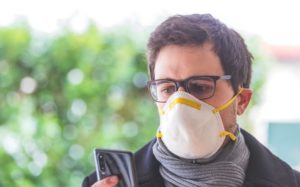Since the start of the COVID-19 lockdown, most of us are spending time in the confinement of our homes, serving this 21-day precautionary “sentence”. In this blog we revisit the rules we must abide by during national lockdown to avoid the spread of the virus and to stay out of trouble with the law.
“The law is: you stay at home,” says Co-operative Governance Minister Nkosazana Dlamini-Zuma. The only exception to the rule is for those performing essential services and for those collecting essential goods and in need of emergency services or grant collection.
According to BusinessTech the following essential services will be exempted from lockdown:
- Medical, mental health and laboratory services;
- Disaster management services like firefighting and emergency services;
- Financial services necessary to maintain the functioning of the banking and payments environment, including the JSE and similar exchanges, as well as insurance services;
- Production of food, cleaning and hygiene products, medical products, fuel and basic goods such as airtime and electricity;
- Grocery stores, including spaza shops;
- Electricity, water, gas and fuel production, supply and related maintenance;
- Critical jobs for essential government services as determined by the Head of National or Provincial Departments;
- Birth and death certificates and replacement ID documents;
- Essential municipal services;
- Care services and social relief of distress provided to older persons, the mentally ill, persons with disabilities, the sick and children;
- Funeral services, including mortuaries;
- Wildlife management, anti-poaching, animal care and vet services;
- Newspaper, broadcasting and telecommunications infrastructure and services;
- Production and sale of any chemicals, hygiene products, pharmaceuticals for the medical or retail sectors;
- Cleaning, sanitation, sewerage, waste and refusal services;
- Services related to the essential functioning of courts, judicial officers, the Master of the High Court, Sheriffs, and legal practitioners required for those services;
- Essential SARS services defined by the Commissioner of SARS;
- Police, peace officers, traffic officers, military medical personnel and soldiers, correctional services officials and traffic management services;
- Postal services and courier services related to transport of medical products;
- Private security services;
- Air-traffic Navigation, Civil Aviation Authority, Cargo Shipping, dockyard services;
- Gold, gold refinery, coal and essential mining;
- Accommodation used for persons rendering essential services, for quarantine, isolation and the lockdown;
- Production, manufacturing, supply, logistics, transport, delivery, critical maintenance and repair in relation to the rendering of essential services including components and equipment;
- Transport services for persons rendering essential services and goods, and transportation of patients;
- Services rendered by the Executive, members of Parliament, members of the Provincial Legislature, members of Local Councils, the Judiciary, traditional leaders, and National Office Bearers of Political Parties represented in Parliament;
- Commissioners of the South African Human Rights Commission, Gender Commission, and the Commission for the Promotion and Protection of the Rights of Cultural, Religious, and Linguistic Communities, and the Public Protector and Deputy Public Protector;
- Transport and logistics in respect of essential goods as set out above.
Workers on the exempted list need to carry a permit with them as proof that they are part of the essential services list. Employers need to provide workers with such permits in order for essential services to be performed.
Public places like parks, beaches, malls, restaurants, casinos, hotels and bars will be closed for 21-days.
Rules related to the buying and use of essential goods and services during lockdown
You are allowed to leave your house to buy essential items or to seek emergency health care if needed. Shops are however only allowed to sell essential goods. You won’t be allowed to buy alcohol, smokes, clothes or any non-essential items. According to the lockdown stipulations, stores operating during this time will NOT be allowed to sell alcohol or cigarettes (the law for cigarettes might change).
Stores and services open/available during lockdown:
- Pharmacies;
- Laboratories;
- Banks;
- Grocery stores;
- Petrol stations;
- Healthcare providers (doctors, nurses, emergency workers); and
- Companies involved in making or distributing of food, basic goods, and medical supplies.
How does social grant collection work during the COVID-19 lockdown?
You are allowed to collect your grants at approved SASSA or South African Post Office (SAPO) outlets. These outlets will however regulate queues and the number of individuals allowed access to their store/offices at a time, so the public is advised not to visit such premises for simple enquiries. Those who have general enquiries are urged to rather make use of the available toll-free numbers or social media platforms.
SASSA Toll Free: 0800 60 10 11
What about public transport?
The Minister of Transport, Fikile Mbalula, says that minibus taxis, metered taxis and e-hailing vehicles will continue giving mobility to “essential services workers and those allowed to make the necessary permitted movements.” “Transport movements in this regard will be allowed to operate from 05:00 to 09:00 and again from 16:00 to 20:00.”
- “A vehicle licensed to carry up to 4 people will only be permitted to load 1 person, a vehicle licensed to carry up to 8 passengers will only be permitted to load a maximum of 3 passengers,” says Mbalula.
- Public transport vehicles need to be properly cleaned and the use of at least 60 % alcohol sanitizer is highly advised.
- Train services will be shut down during this period.
The only exception to the rule: Buses and taxis will be permitted to operate from 5am until 8pm on Monday, 30 March 2020, to Friday, 3 April 2020, in order to help society’s most vulnerable.
FAQs:

- Do I have to wear a mask when I do essential shopping?
You only have to wear a mask if you suspect that you might be ill or if you visit a health care worker for a COVID-19 test. If needed, cloth or material masks are better than no barrier. Do not buy or wear masks if you do not need them.
- Am I allowed to drive between towns during lockdown?
Only providers of essential services can drive between towns if they have a permit to do so.
- Can I go to a party or funeral?
You can’t go to a party, but you can attend a funeral if there are less than 50 people attending.
Police Minister, Bheki Cele, says that the number of people allowed at a single gathering has been reduced from 100 to 50, including for funerals.
- May I take my dog for a walk or go for a jog outside?
Unfortunately, NO! You must stay indoors, unless you work in essential services. Outdoor exercise away from home is prohibited. You are however allowed to exercise in your garden. Try skipping or doing some yoga for relaxation.
- Are breaking the lockdown laws punishable with imprisonment?
Yes, you can go to prison for up to 6 months or receive a fine for not abiding by the rules.
The Department of Justice and Correctional Services says that courts will remain open to deal with urgent matters and offences and or applications related to the COVID-19 regulations.
Do the right thing and be a responsible South African. Stay at home and follow lockdown rules so that we have the best chance at preventing the spread of this deadly virus.
Stay strong South Africa!
Read more



